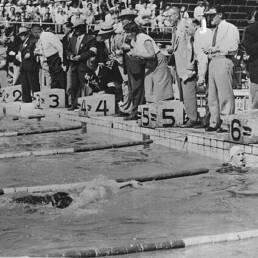The Egyptian Revolution of 2011 was a momentous event in the Middle East that captured the world’s attention. What is remarkable is that there was a little bit of Gandhi silently present everywhere in the heart of the Egyptian revolution.
The revolution, which led to the ousting of President Hosni Mubarak, was a pivotal moment in Egypt’s history and the wider Arab world. Under the regime’s rule, dissent was met with brutal repression, and opposition movements were often silenced with force.
While the Egyptian people were the driving force behind this movement, it is essential to recognize the untold influence of Mahatma Gandhi, the iconic Indian leader of nonviolent resistance. It was invisible yet so powerful.
During those historic days in Cairo, millions of impassioned Egyptians gathered to demand an end to the oppressive regime. Their voices rose in a harmonious chorus of ‘silmayyiya,’ – a resounding call for peaceful change that echoed the timeless principles of Mahatma Gandhi.
In the tumultuous landscape, one distinguished figure emerged on the scene – Mohamed ElBaradei, a man whose global stature was reflected in the prestigious accolades that adorned his name: the Nobel Prize for Peace and the Nile Medal, Egypt’s highest honor.
As he stepped into Tahrir Square, the air was filled with chants resonating through the streets, echoing the sentiment of a nation in search of a savior. “Oh ElBaradei, Egypt’s Gandhi,” the people proclaimed, drawing an implicit parallel with the Mahatma.
“I told protesters about Gandhi and the way he took on the British colonial rulers. Gandhi’s non-violent struggle helped us in our journey to freedom,” ElBaradei remarked to India Today during a conclave in New Delhi 2011.

While one might wonder how Gandhi’s influence extended to Egypt, it’s a story rooted in determination, resilience, and a shared struggle for national dignity and independence. It is a chapter that reveals the profound impact of his ideology on distant shores.
It’s important to note that Gandhi never set foot on Egyptian soil. Instead, his encounter with Egypt was a fleeting one in 1931, when he embarked on a voyage from India to England for a round table conference through the iconic Suez Canal.
However, the British colonial authorities, who held sway over both India and Egypt those days, chose not to allow Gandhi to disembark in Egypt. Furthermore, they took the extraordinary step of preventing Egyptian leaders from meeting him.
This restriction, born out of colonial apprehensions, denied Egyptians the chance to interact with one of the most influential figures of the 20th century, who championed nonviolent resistance and civil disobedience as potent weapons against colonial oppression.
Despite these obstacles, the spirit of solidarity and admiration for Gandhi was evident among the Egyptian populace. Stories emerged of Egyptians, or their parents, embarking on small boats to greet the ship carrying Gandhi as it passed through the Suez Canal.
Gandhi’s influence left a lasting mark on Arab intellectuals fighting for their national identity and freedom, seeking a secular mass movement and exploring the potential of non-violence. Numerous works of literature in Egypt/Arab world were inspired by Gandhi’s legacy.
Poet Ilyas Farhat wrote after the killing of Gandhi –
“Indeed, the hand that poured poison in the cup of Socrates is the hand that nailed Christ on the cross.
It is the same hand that felled Gandhi with the bullet.
It is the hand of blind fanaticism and senseless hatred.”
Back to the 2011 Egypt revolution. Wael Ghonim, a Google employee then, emerged as one of the key figures responsible for igniting the revolution. With his Facebook page “We are all Khaled Said,” he played a pivotal role in galvanizing a nation against oppressive forces.
This movement was sparked by the tragic death of Khaled Mohamed Saeed, who died in police custody in Alexandria in June 2010. Ghonim emerged as a symbol of the revolution. Two days after the Tahrir Square protest @Ghonim went missing.
For ten harrowing days, he remained blindfolded in custody, his whereabouts unknown to the world. Upon his release, in a poignant interview with CNN, he revealed the influences that had shaped his resolve. And, who else could it be? His hero was MK Gandhi.
There was a little bit of Gandhi everywhere in Tahrir Square. The placards demonstrated his lasting words, as this cartoon by path breaking cartoonist @doaaeladl
“First they ignore you,
then they ridicule you,
then they fight you,
then you win.”
Sources:
Ivan Watson, Wael Ghonim: Negotiation days with Mubarak are over, CNN, http://www.cnn.com/2011/WORLD/africa/02/09/egypt.protests.google.exec/index.html
Abdul Ali, The Image of Mahatma Gandhi in Modern Arabic Literature, Educreation Publishing, 2018
Linda Herrera, Magdy Alabady, and Adel Iskandar, ElBaradei’s Gandhi Moment? https://www.jadaliyya.com/De
Shantanu Guha Ray, Dhiraj Nayyar, Gandhi an inspiration to Egyptian revolution, says ElBaradei, India Today, https://www.indiatoday.in/india/north/story/rebuilding-egypt-will-need-time-elbaradei-130608-2011-03-17
Image attributes:
Doaa Al-Adl published in Almasry Alyoum, ElBaradei’s Gandhi Moment?, https://www.jadaliyya.com/Details/27622
Protester holds Egyptian flag during protests which began on 25 January 2011, • CC BY-SA 2.0 from Wikimedia Commons
Protest in Tahrir Square, by Mona sosh, CC BY 2.0 from Wikimedia Commons
Mohamed el-Baradei, public domain from Wikimedia commons
WaelGhonim, by Graham Hancock, CC BY-SA 3.0 from Wikimedia commons
Mahatma Gandhi en route to the Second Round Table Conference, public domain from Wikimedia Commons




